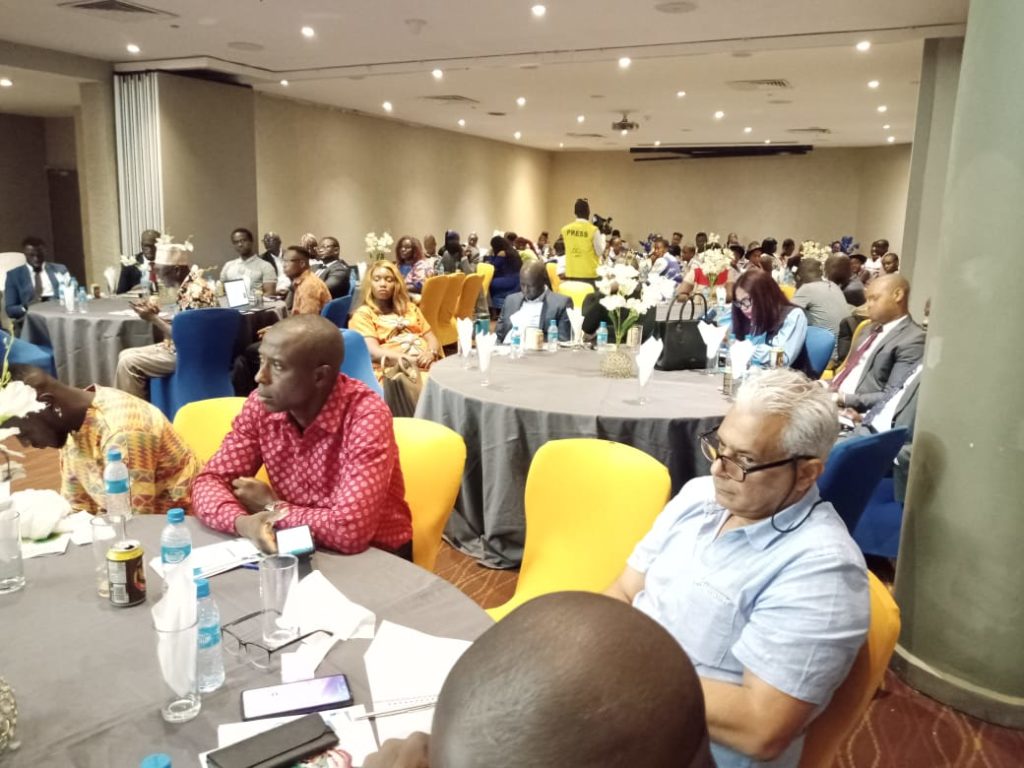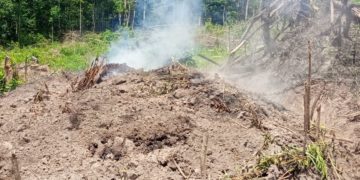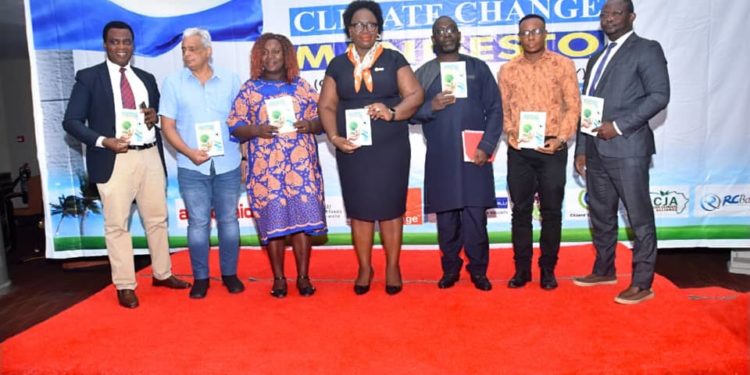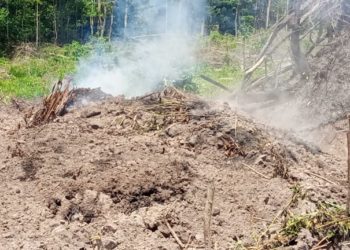While the discourse in Sierra Leone’s upcoming elections has been dominated by concerns over violence, which has itself been fueled by hate speech and dis and misinformation, many important issues close to the hearts of many voters have taken a backstage.
One such issue is climate change, which is hardly on the agender in any public discussion even outside the election season.
But a campaign group is trying to change this.
Shout Climate Change Africa (SCCA) has published a manifesto, the first of its kind in the country’s political history, which outlines concerns of the people about the weather phenomenon and how it affects their livelihoods.
The 10-page document, titled: ‘Citizens’ Climate Change Manifesto,’ provides a guidance for political parties and candidates for consideration for inclusion in their political campaign manifestos and subsequently in their development plans when in governance.
“The climate emergency is the biggest threat facing our country and the planet at large, where climate change is today one of the most critical environmental challenges and consequences that the world is battling with,” reads a part of the Executive Summary of the document which was unveiled on Monday, June 12, 2023.
Sierra Leone will vote on June 24th, in the fifth elections since the return of democracy following the end of the country’s civil war.
Incumbent President Julius Maada Bio is being challenged by 12 other candidates for the country’s top job.
Sierra Leoneans will also be voting for members of parliament and local council representatives.
Campaigners say throughout the last two weeks of campaigns, none of the political leaders or their supporters have been discussing issues like climate change, which they say justifies the need for such a position paper.
Finnex John Asibor, Executive Director of SCCA, said the manifesto is important not just for the authorities to consider the concerns of the voters, but also it serves as a standard through which the electorate can evaluate elected officials in subsequent elections.
“The reason why it is important to bring the leaders onboard, because they have the authority, they have the money…,” Mr Asibo told ManoReporters.
He added that the manifesto is also important in that the government has the power to implement the environmental laws, which are sometimes violated from within.
“We see people building houses on disaster prone areas, which is not supposed to be. And those who are supposed to arrest them or stop them they are the ones giving them license to do the construction. We as activists have no power to stop them, we have no power to arrest them. This is the major reason we did this manifesto and we want the government to take it very, very seriously,” he stressed.

The manifesto was developed from findings of a nationwide survey assessing the public’s knowledge about climate change, its causes and impact on the lives of the respondents.
Some 1000 respondents were selected from a population that the organization says represents a wide segment of society, including people who are usually directly affected by the effects of climate change, like famers and traders, as well as those with the power to take action and change the situation, like local council, traditional leaders and government authorities.
Some 35 percent of the respondents were found to have clear knowledge about climate change, while 60 percent said they knew that the weather was getting warmer, even though they couldn’t determine the explanation for it.
Some 80 percent of the respondents agreed that there were more disaster events now than before.
Mr Asibo says the survey showed that people know about the effects of climate change and what it causes but that they just don’t know the link between the phenomenon and their individual and collective contributions to it.
To its credit, the incumbent Sierra Leone People’s Party has elevated environmental issues in governance in the last five years, notably with its decision to establish a ministry responsible for the environment and enacting and reviewing of several environmental laws, among many other actions geared towards protecting the environment.
But as this survey showed, people’s perception about the reality on the grown suggests the need for more and stronger action.
The government also shook the fate of environmentalists with its controversial decision to sell off an ecologically rich area in the Freetown peninsula to Chinese investors.
Nonetheless, in its 2023 manifesto, the ‘New Direction’ administration has made further promises of actions geared towards protecting the environment.
The main opposition APC, also has among its top priorities manifesto points protection of the environment and response to climate change.
However, at Monday’s launch of the Manifesto, Executive Director of Action Aid International Sierra Leone, Foday Bassie Swaray, lamented the absence of the subject among the top priorities of political parties in these elections. Mr Swaray said this is concerning for a country which is considered one of the most vulnerable to climate change and which has experienced disasters attributed to it in recent years.
Sierra Leone has recently experienced several environmental disasters that have been attributed to climate change, notably the 2017 mudslides just outside the capital, Freetown that killed over 1000 people and made 3000 others homeless, as well as recurrent floodings and smaller landslides.
From the SCCA survey, 65 percent of respondents attributed at least two types of disasters as man-made or man-induced.
Majority of them – 55 percent – blamed the government for low level of law enforcement in addressing environmental issues.
Like for many low polluting countries, in Sierra Leone activities such as slashing and burning of trees for the production of charcoal and fossil fuel combustion are among the top contributing factors to global warming and climate change.
Shout Climate Change Africa and its partners want action towards these activities, as part of the country’s commitment to reducing emissions in line with global treaties like the Paris Agreement of the UN Convention on Climate Change.
Sierra Leone emitted 1.01mt of CO2 in 2021, according to the Emissions Database for Global Atmospheric Research of the European Commission. The country’s updated National Determined Contributions (NDC) registry defined a progressive path forward for cutting emissions from 2005 levels: 5% by 2025, 10% by 2030, and 25% by 2050.
For this to be achieved, the Citizen’s Perception Manifesto on Climate Change outlines a series of actions it expects the next government to undertake, including reduction of importation of environmentally depleting substances like fertilizers and pesticides, as well as a complete ban on the exportation of timber and logs. It also calls for investment in clean energy technologies.
“One of the things that the government needs to do, which it is already doing, is to focus on clean energy production. They should also check vehicles that cone into the country,” says Asibo.




















